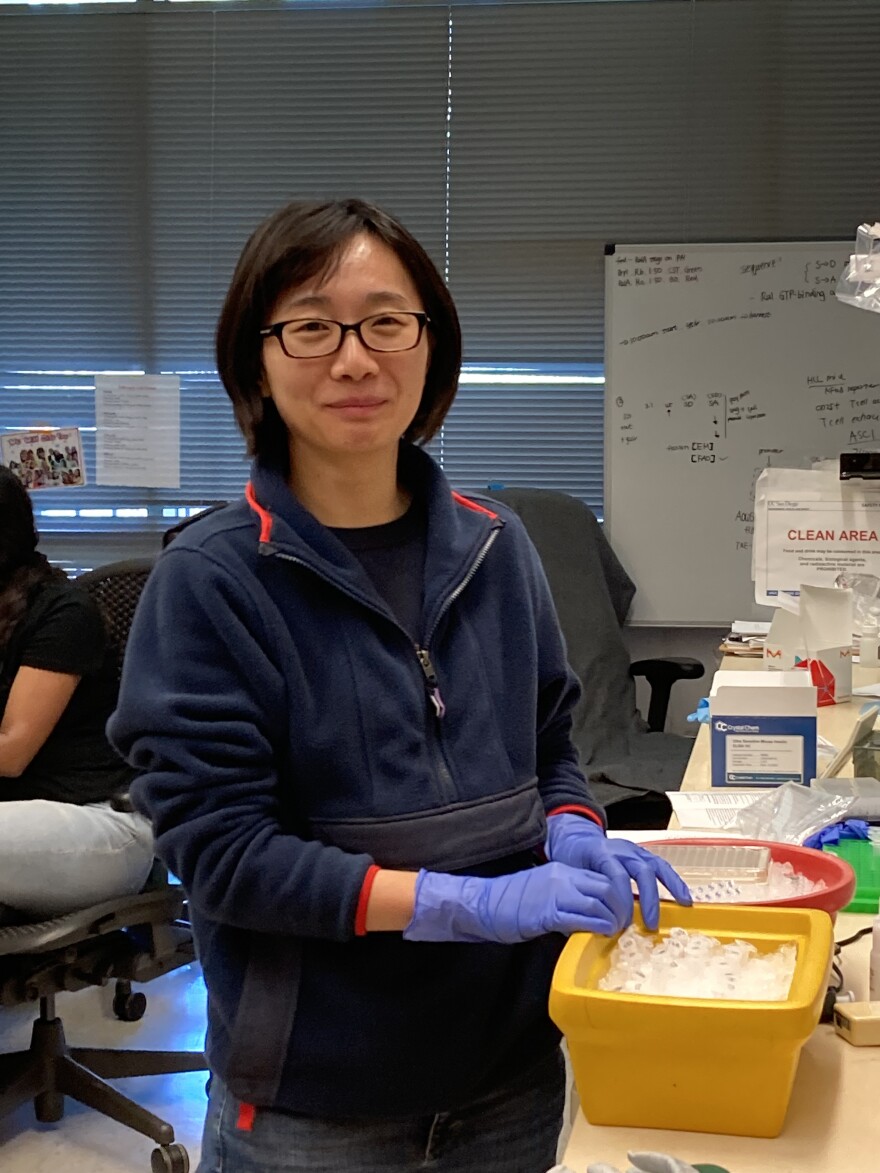Researchers at UC San Diego were looking at how cells store and burn energy. They hypothesized that shutting down a molecule called RalA in lab mice would cause their cells to burn less energy. Therefore more fat would be stored, and more weight would be gained.
“So when we made the mice and looked at them, we saw something that was kind of shocking. We saw the opposite effect,” said Alan Saltiel, professor of medicine and director of the UCSD-UCLA Diabetes Research Center.
They found those mice became much more efficient at burning fat and controlling weight.
“And then we put these mice on high-fat diets for a long time and we noticed that they didn’t gain weight like normal mice do on high-fat diets,” Saltiel said.
The obesity epidemic has taught us a lot about human metabolism, such as the increased difficulty of losing weight among overweight people. The work of the RalA molecule is one reason for this.
And that discovery holds the promise of a future treatment for obese people.
Saltiel said what happened in his lab was one of those hypothetical mistakes that led to a valuable discovery, showing that the work of RalA, in its natural state, was — in a sense — causing obesity.
It’s been shown that the more overweight a person gets, the more difficult it is to lose weight. A classic case of adding insult to injury.
Saltiel’s lab also discovered that with obesity, a cell’s mitochondria literally break into smaller pieces, making them less able to burn energy. There are many ways our bodies protect stores of fat.
“And this discovery about the mitochondria is one of those ways. One of the factors is that these fat cells, that usually burn a little bit of energy, lose the ability to burn energy and get better at storing energy in obesity,” Saltiel said.

He believes our bodies’ focus on protecting fat stores is a result of evolution, calling back to ancestral days when food could be very hard to come by.
“We are very efficient at storing energy because we think a famine is right around the corner,” Saltiel said.
So Saltiel’s lab has identified a target called RalA and they’ve created a “Ral inhibitor” to deactivate it, causing mice on high-fat diets to not gain weight. It doesn’t take much imagination to wonder if shutting down a human's RalA functions could do the same thing, and help to cure their obesity.
Saltiel said it’s not a crazy idea. But mice aren’t people and it’s hard to know if blocking our RalA functions is a good idea.
“We have no clear idea that it’s safe. But we don’t have an idea that it isn’t safe. It’s one of those things we’d have to investigate,” he said.
Clinical trials on live humans are not on the horizon, but Saltiel said they are starting to experiment on human tissues. Alan Saltiel is the senior author of a research paper on the topic that was published in Nature Metabolism. The lead author of the article is UCSD health sciences postdoc Wenmin Xia.






